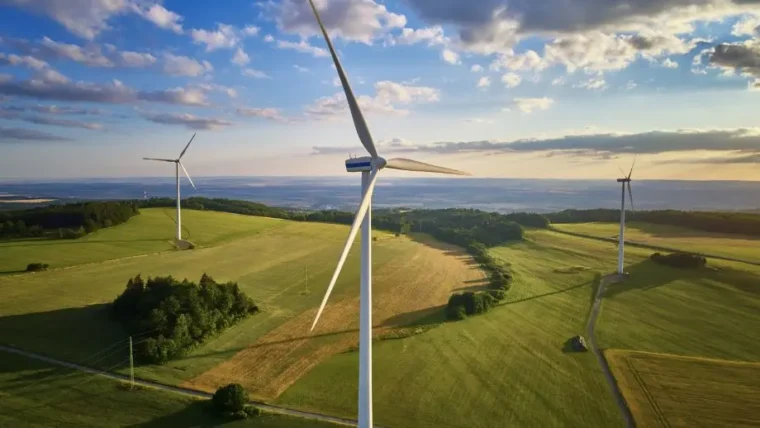Fortnightly Bulletin – 30th November 2020
30 November 2020

Legal Updates
Small-scale heat treatment of waste plastics for reuse: RPS 112
This regulatory position statement (RPS) covers the small-scale heat treatment of waste plastic under:
- waste exemption: T4 preparatory treatments, such as baling, sorting, shredding
- waste exemption: U9 using waste to manufacture finished goods
If you comply with the conditions in this RPS you can:
- heat waste plastic in an operation carried out under T4 or U9 exemption without an environmental permit for a waste operation
- will be treated as if you hold an environmental permit when you apply for accreditation as a reprocessor of packaging waste under the Producer Responsibility Obligations (Packaging Waste) Regulations 2007 (as amended)
If you cannot comply with the conditions in this RPS and those in the T4 or U9 waste exemption, you must apply for an environmental permit.
This RPS will be reviewed by 30th April 2022. You will need to check back then to see if it still applies or if you need to apply for a permit.
Incinerating specified healthcare wastes at a municipal waste incinerator: RPS C23
This RPS was updated by the EA on the 23rd November 2020. Your environmental permit states the waste types and quantities you can accept. Normally, you will breach your permit conditions if you accept waste types or quantities beyond those stated in your permit.
If you follow the conditions in this COVID-19 RPS you can accept and incinerate coronavirus (COVID-19) waste at a municipal waste incinerator without varying your environmental permit.
This COVID-19 RPS only applies to operators of permitted municipal waste incinerators. It sets out when you can accept and incinerate COVID-19 waste without varying your environmental permit – provided you comply with its conditions.
This COVID-19 RPS will be withdrawn on 31st January 2021. After this date you must have a permit authorising the activity or stop accepting the wastes listed in condition 1 at your facility.
Treating and using water that contains concrete and silt at construction sites: RPS 235
This RPS was updated by the EA on the 23rd November 2020. If you comply with the conditions in this RPS you do not need an environmental permit for a waste operation for treating or using wastewater that contains concrete and silt.
This RPS allows you to:
- store and treat water that contains concrete and silt, within the construction site, before use
- use treated water that contains concrete for washing equipment or mixing concrete
- use treated water that contains silt produced from washing equipment for washing equipment or damping down haul roads
This RPS does not apply to any other activity, even if it is under the same legislation. You may still need other permits or licences for other activities you carry out. This RPS will be reviewed by 1st July 2022. You will need to check back then to see if it still applies or if you need to apply for a permit.
Articles of Interest
Environmental legal compliance: the cost of getting it wrong
There are over 300 UK pieces of environmental legislation that business must adhere to. Whether you operate a small office or a large manufacturing site, you still have a responsibility to manage your risks and comply with legislation associated with your site’s processes and activities.
Fines are now unlimited and clean-up costs can be even more costly. Recently, a well-known food and drink company were fined £140,000 and paid £500,000 in clean-up costs after diesel escaped their site and polluted a nearby watercourse.
These are unprecedented times for businesses and EMS want to ensure that your business remains compliant and is prepared for any future legislative changes. Our team of environmental experts can give you peace of mind that your environmental legal responsibilities are met.
By utilising our team of experts, your business will experience numerous benefits:
- Maintaining environmental legal compliance and keeping an up-to-date legal register – What is environmental compliance and why is it so important?
- Compliance with Clauses 6.1.3 and 9.1.2 of ISO 14001
- Consistent guidance and support from a dedicated environmental consultant with further access to the EMS Advisory Team
- Continuous environmental improvement and proactive environmental management leading to potential cost savings due to increases in efficiencies
- Knowledge and insight into industry best practice and environmental events
The service includes:
- Quarterly report
- Set number of hours of consultancy support delivered in various formats
- Snapshot environmental audit and an associated compliance action plan
- Quarterly legal register updates on new, amended or revoked legislation
Find out more about this service.
Fines and Prosecutions
Food processing plant pay £50k for effluent leak
A Lincolnshire food company has paid £50,000 towards environmental improvements after untreated wastewater from its plant polluted a nearby stream. Approximately 26,000 litres of untreated wastewater leaked from plant, located on site, of which an unknown quantity entered the stream in January 2020. The plant slaughters and processes chickens, on Corringham Road in Gainsborough.
The discharge occurred as a result of a series of faults within the company’s treatment plant.
As the effluent leaked from the plant, workers on site blocked a drain in an attempt to contain the spill but the untreated wastewater flooded the area which eventually reached a surface water drain and entered the stream. Despite efforts to minimise the damage, staff did not follow emergency procedures correctly meaning their efforts were unsuccessful.
While it is unknown how much untreated wastewater entered the stream, samples taken by Environment Agency (EA) officers found a toxic level of ammonia in the water. The levels were more than 80 times the natural level.
After an investigation, the EA deemed the matter could be appropriately handled by way of an enforcement undertaking. The company in question paid £50,000 to the Lincolnshire Rivers Trust to fund environmental improvements around Lincoln.
It is important to ensure that treatment plants are serviced and maintained on a regular basis by a competent contractor or member of staff. Any areas of improvement identified must be addressed in order to mitigate any risks. Staff must also be trained on emergency preparedness response procedures to ensure incidents and emergency situations are dealt with immediately and in the correct manner.
Source: Environment Agency, November 2020
Online learning and events
The Value of Collaboration for Corporate Sustainability Leadership
4th December 2020, 12:30
IEMA are hosting this session with representatives of the IEMA Fellows Working Group on collaboration for corporate sustainability leadership with a presentation of the key findings of their latest publication on the value of collaboration for sustainability. The webinar includes case study examples of successful collaborations in key sectors and industries, as mapped against the UN Sustainable Development Goals.
The ‘Invisible Ocean Pollutants’ from our Roads
8th December 2020, 12:30
I.M3 Institute of Materials, Minerals and Mining are hosting a session to explore the causes, impacts and solutions to stem the tide of this invisible pollutant on our roads.









